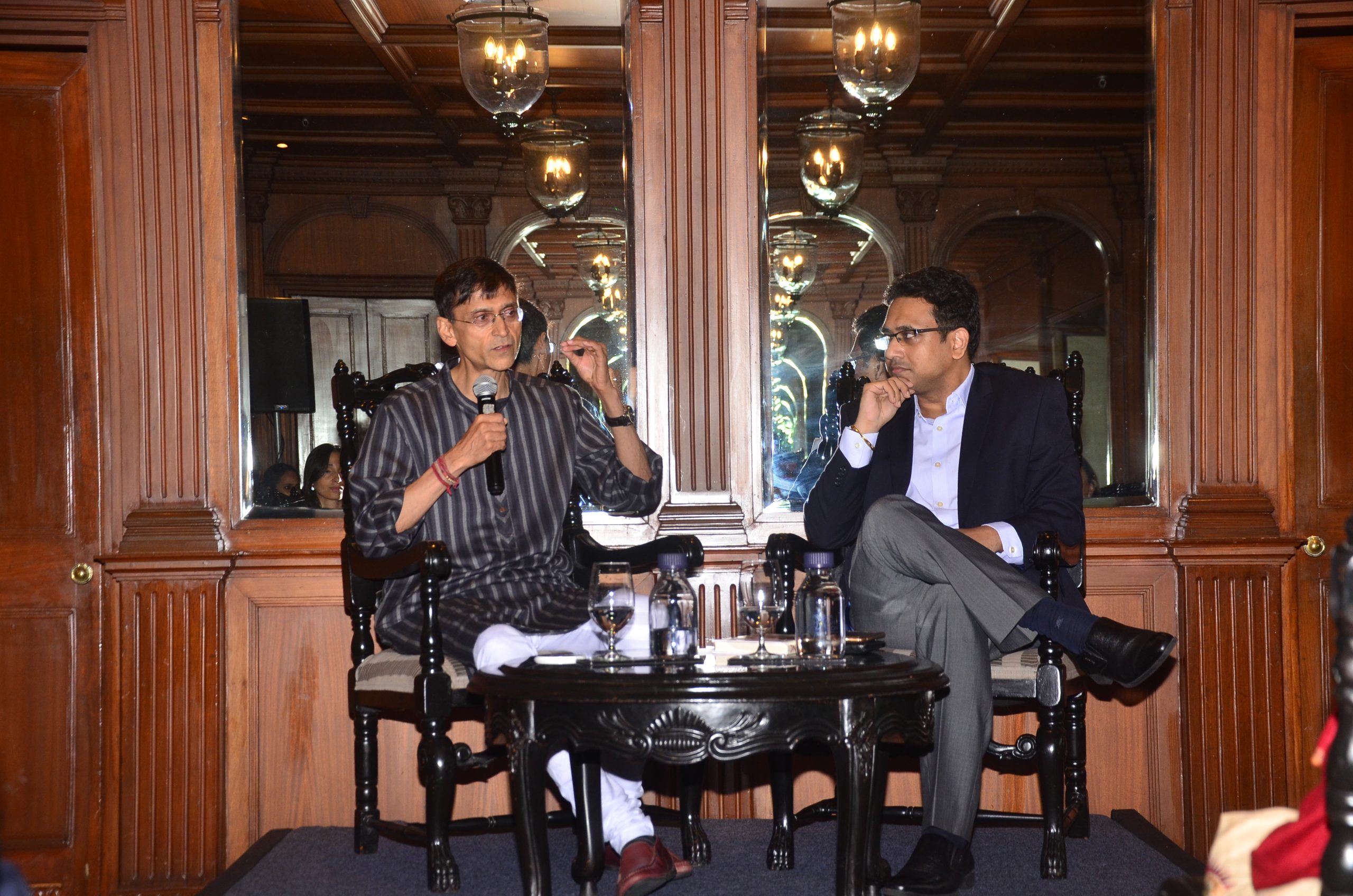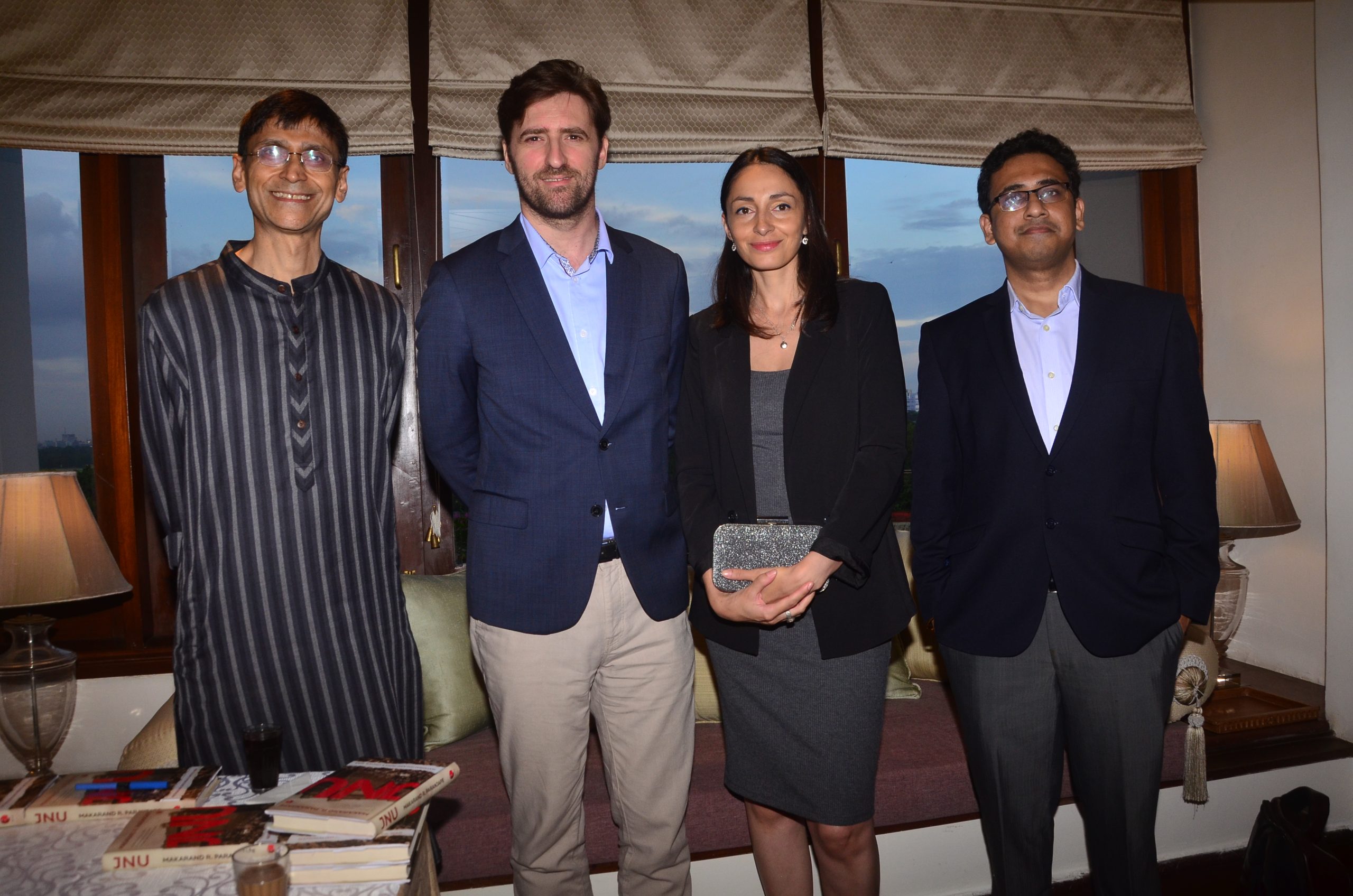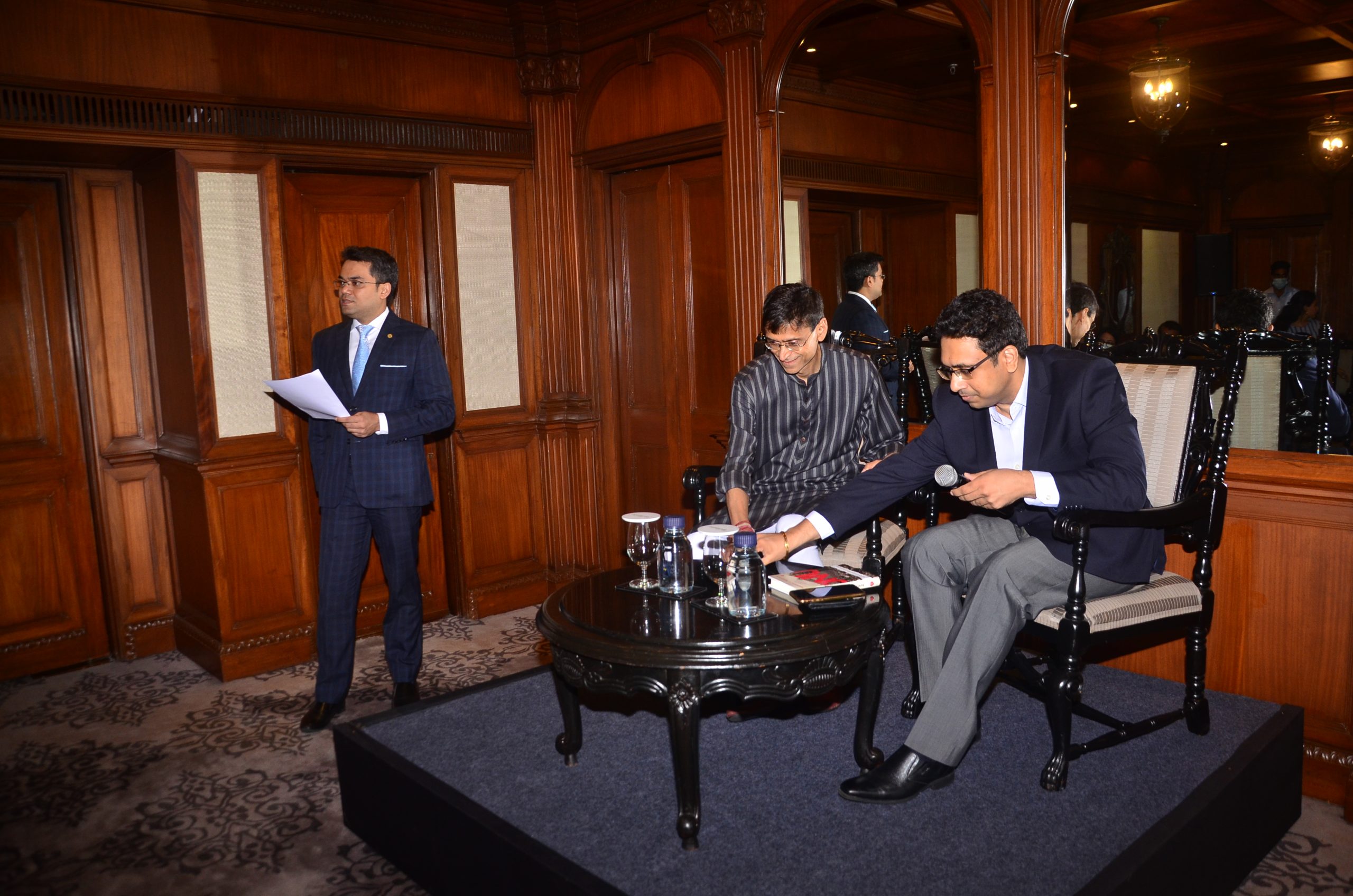Makarand R. Paranjape’s contributions to the world of literature and philosophy are well known. He is a poet, novelist and columnist, and has also been a professor of English at Jawaharlal Nehru University and the Director of the Indian Institute of Advanced Study, Shimla. Prabha Khaitan Foundation hosted Paranjape at a special session of An Author’s Afternoon at the Taj Bengal in Kolkata. In conversation with Paranjape was Harsh Gupta ‘Madhusudan’, a public investor based in India whose columns on politics and finance appear regularly in leading publications. The conversation centred around Paranjape’s recently published book, JNU: Nationalism and India’s Uncivil War and what drove the author to write the book.
Why does Paranjape see himself as a “reluctant public intellectual”? “I call myself a reluctant public intellectual because I did not want to get involved in the political turmoil that took place at Jawaharlal Nehru University; it was something that was almost thrust upon me,” said Paranjape. “I had to speak up because no one else was doing so. However, that does not mean I am a reluctant intellectual. The life of the mind and the curiosity to understand things have been with me forever. The decisions I took in my life — of studying literature and serving my country despite moments of reluctance — were signs that a public life, a life of ideas, was meant to be.” Does he feel that a crisis of democratic liberalism is prevalent at the moment? “Democracies now are frayed and afraid because the alternatives to democracy are not really attractive,” responded the author. “Free societies are losing confidence in themselves because of the cankers that are eating at their vitals. Democracies are being threatened from the inside, as the basic tenets on which democracy is built — freedom, dissent, discussion and debate — are struggling to survive as people are afraid that they will get persecuted for their opinions. Moreover, the biggest pitfall of Indian politics is its inclination towards identity politics and its adherence to the correctness of identity raj.’’
While on the subject of liberalism, Paranjape stated that he believes that most liberals are “illiberals”. “Illiberalism is the imposition of narrow, sanctimonious views on others in the name of ‘good causes’,” explained Paranjape. “This leads to the suppression of free speech and the restriction of ideas. Liberalism should allow for the competition of good ideas and good causes; but now, bad ideas and bad causes are being standardised and accepted. Illiberalism, cancel culture and wokeism are all forms of false consciousness. The function of being liberal is to help people see falsehoods for what they are rather than force them to align with a particular ideology”.
While talking about the events that took place on the JNU campus in 2016, Paranjape clarified that he is against antiquated sedition laws which clamp down on people’s freedom of speech. He was not against the students’ agitation, but against an entire university being held to ransom by a group of students with interests of their own. “You can’t hijack a university space and turn it into a political platform against an elected government just because you don’t consider its ideology to be legitimate. Others have the right to differ from you, and you should be able to allow and respect a difference of opinion.”
The solution to the imminent crisis, according to Paranjape, lies in practising consciousness. “We now live in a world of digital totalitarianism; we need to practise awareness and we have to take on the challenge of living consciously. No one else can do it for us,” mused Paranjape. “Consciousness is a matrix, and to have these ideas is to automatically affect humanity. Societal cohesion is the need of the hour. Galvanising the collective iccha shakti, gyan shakti and kriya shakti can help in the creation of a brighter future. In the context of India, we must understand and accept that we’re all stakeholders in the Indian republic. Constant identity-based tension and polarisation go against the idea of fraternity. We have to teach our children to stand up for what is right. If we don’t, the future will be bleak.”
The discussion concluded with an invigorating Q&A session with the audience, which wrapped up with Paranjape making a memorable statement. “We can be matter and consciousness ourselves — India is the civilisation that has always said that we are consciousness. And matter itself is a species of consciousness, not the other way around.”
The afternoon came to an end with Nicolas Facino, the director of Alliance Francaise du Bengale, along with his wife, Iryna Facino, gifting dokra artwork from Bengal to the guests.









